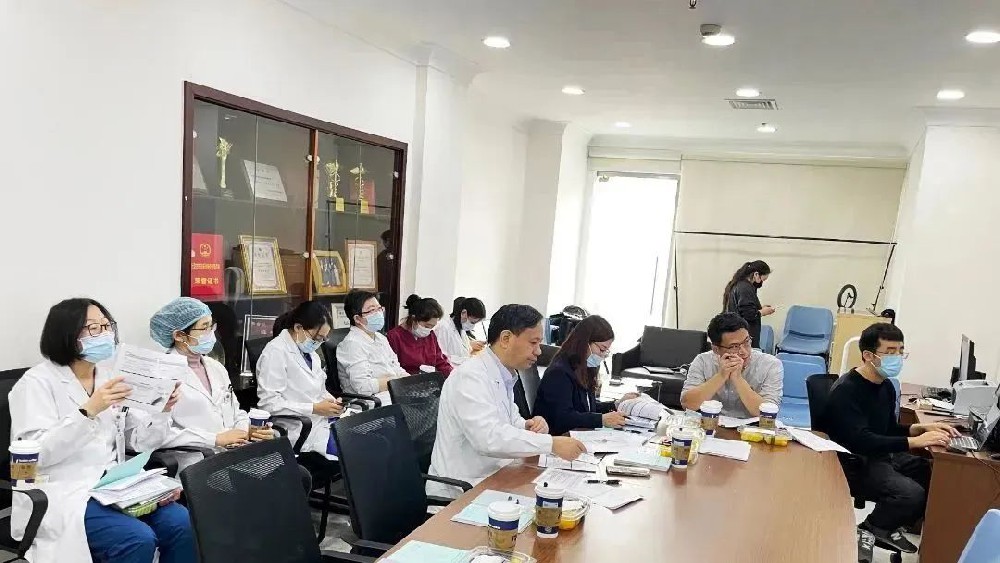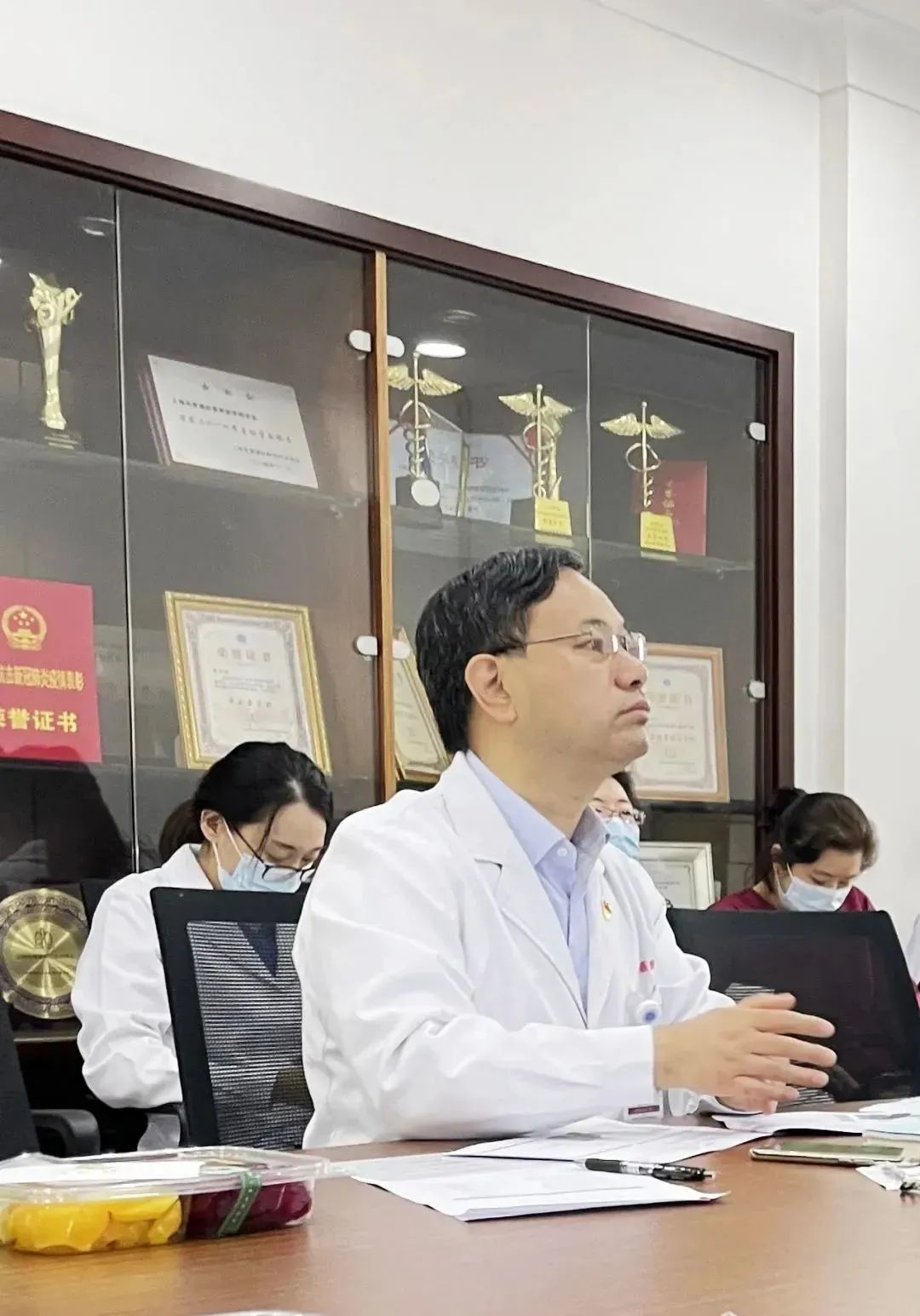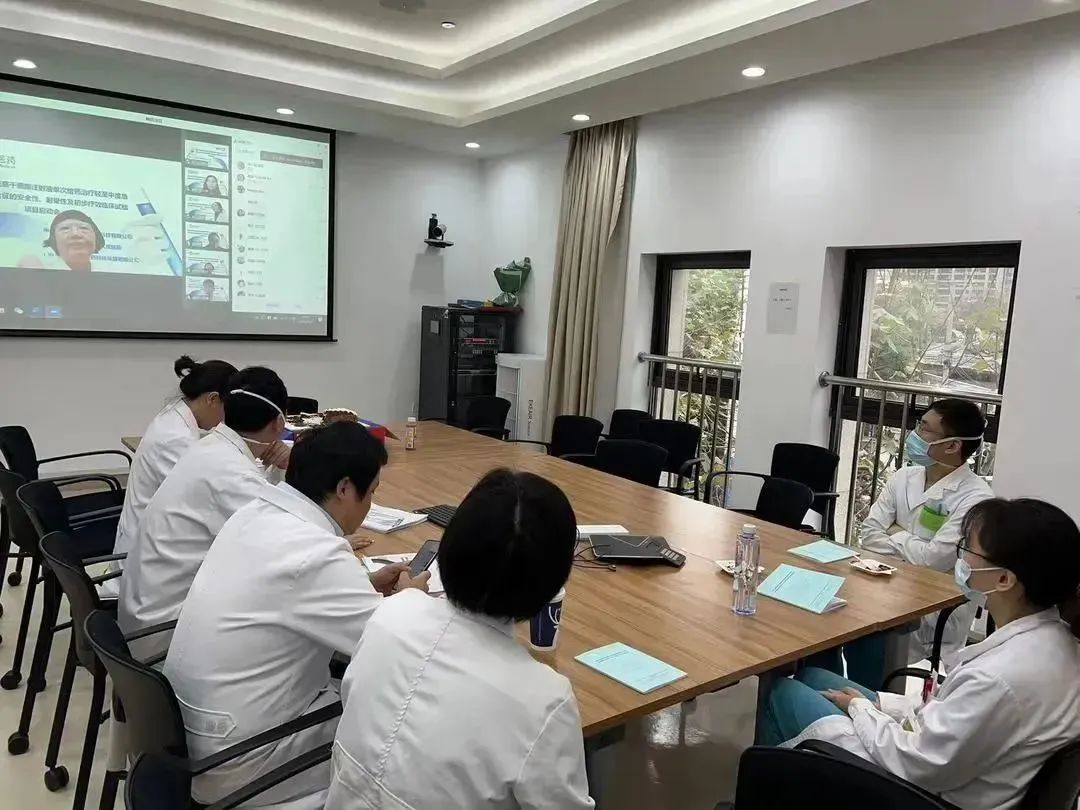The phase I/II clinical trial of human umbilical cord mesenchymal stem cell therapy for ARDS was officially launched in Ruijin Hospital and Shanghai General Hospital!
On November 25, 2022, with the approval of the National Medical Products Administration (NMPA) (Drug Clinical Trial Approval Notice: 2022LP00869), Asia Cell Therapeutics (Zhejiang) Co., Ltd. (aCGT) initiated the "Safety and Tolerance of Umbilical Cord Mesenchymal Stem Cells in Patients With Acute Respiratory Distress Syndrome (ARDS)".The kick-off meeting of the project was successfully held in Ruijin Hospital Affiliated to Shanghai Jiao Tong University School of Medicine (hereinafter referred to as "Ruijin Hospital"), and the sub-centers of the project participated in the project, including Shanghai General Hospital and Renji Hospital affiliated to Shanghai Jiao Tong University School of Medicine. Kick-off meeting in Ruijin Hospital Director Qu Jieming, the principal investigator (PI) of Ruijin Hospital, and his clinical team, Professor Wang Hao, CEO of aCGT, the sponsor, and the clinical team, as well as personnel from CRO and SMO, jointly attended the kick-off meeting. At the meeting, the background of the clinical trial, the design of the research protocol, the inclusion criteria, the management of cell preparations, informed consent and risk management and other standard processes were introduced in detail. The participants focused on the use of cell preparations, quality assurance and control, clinical data recording, AE/SAE and clinical-related reports. The principal investigator(PI), Director Qu Jieming On December 1, due to the epidemic situation, the kick-off meeting of Shanghai General Hospital, a sub-center of the project, was held online, and the main investigator Wang Ruilan, her clinical team and the relevant personnel of the sponsor aCGT Clinical Team attended the meeting. The kick-off meeting of Shanghai General Hospital The successful convening of the kick-off meeting of this project marks the official launch of the project and the start of recruiting subjects, and the specific inclusion criteria are as follows: Inclusion Criteria 18-75 years old (including the threshold), male or female A definite diagnosis of mild to moderate acute respiratory distress syndrome (ARDS) (according to the ARDS Berlin definition and diagnostic criteria) ARDS onset ≤ 5 days 100 mmHg < PaO2/FiO2 ≤ 300 mmHg Bilateral pulmonary infiltrates on chest radiograph or chest CT Rule out other causes of pulmonary oedema, such as cardiogenic pulmonary oedema and pulmonary oedema due to fluid overload Have no plans to have children within 2 weeks before screening and 3 months after the end of the trial, and agree to use effective non-pharmacological contraception during the trial Patients voluntarily signed an informed consent form and were willing to co-operate with the trial process Exclusion Criteria: Hypersensitivity to known components of the drug (the main component of this product is human umbilical cord mesenchymal stem cells, excipients include dimethyl sulfoxide, human albumin, compound electrolyte injection), the presence of a history of allergy to gentamicin or other history of severe allergy Patients requiring treatment for any malignancy within 2 years prior to administration (except non-melanoma skin cancer) Lung transplant patients Patients with malignant haematological diseases Persons who have had a cardiovascular event within 3 months prior to dosing (e.g., unstable angina, congestive heart failure, myocardial infarction within the last 12 months, haemodynamic instability or known left ventricular ejection fraction (LVEF) <40% or clinically significant rhythm or conduction abnormalities) A history of deep vein thrombosis or pulmonary embolism during the Screening Period that, in the judgement of the Investigator, may be triggered or increase risk by receiving MSC transplantation therapy A breastfeeding female or a female with a positive blood pregnancy test result during the Screening Period History of immunodeficiency and/or autoimmune disease such as systemic lupus erythematosus (SLE), or other congenital immunodeficiency disease, idiopathic IgA deficiency. Laboratory tests at screening meet any of the following: Albuminous transaminase (AST) or albuminous transaminase (ALT) > 5 x ULN (non-hepatic sources are excluded; Serum creatinine > 1.5 x ULN or glomerular filtration rate < 60 mL/min/1.74 m2; Activated partial thromboplastin time (APTT) > 2.5 x ULN or prothrombin time; (PT) > 2.5 x ULN (not receiving anticoagulation) Positive infectious diseases (HBsAg, HCV, HIV-1, syphilis, active tuberculosis) Currently receiving extracorporeal life support (ECLS) such as continuous haemodialysis (CRRT) and carbon dioxide removal (ECCO2R), or high frequency oscillatory ventilation (HFOV) Presence of any other irreversible condition or symptom for which the subject has an expected survival of <3 months Combined WHO Class III or IV pulmonary hypertension Patients who refuse lung protective ventilation and fluid management Participation in other clinical trials or studies within 3 months prior to administration Persons with prior stem cell therapy Any other condition that, in the judgement of the investigator, makes participation in this trial inappropriate, such as a condition in which the study is not in the subject's current best interest (e.g., detrimental to health) 

